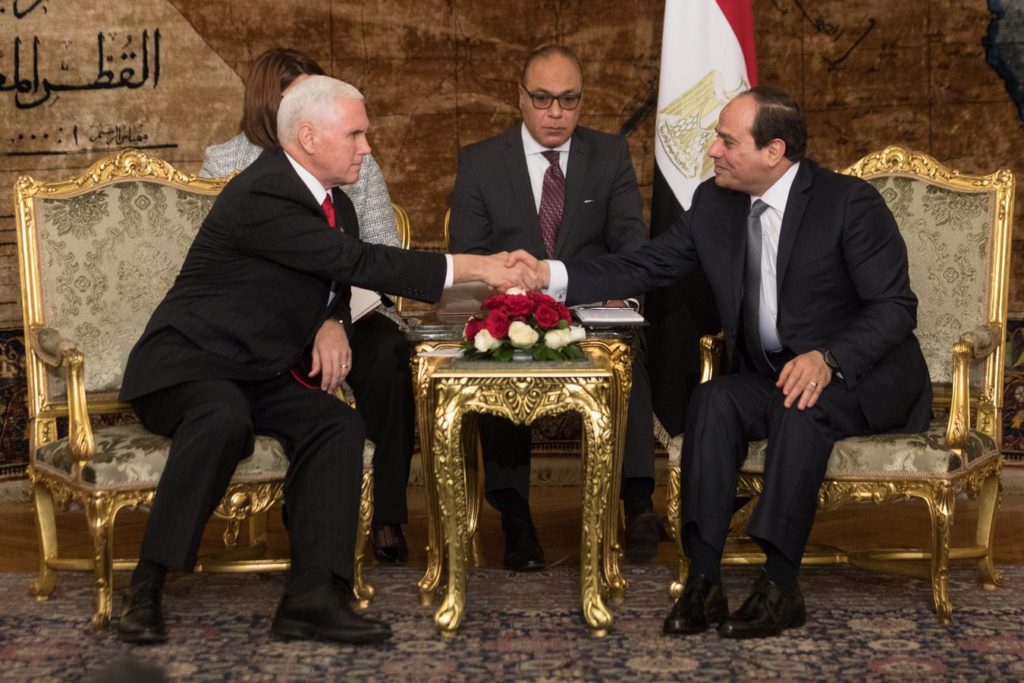[PHOTOS IN EXTENDED ARTICLE]
Jordan’s king appealed Sunday to U.S. Vice President Mike Pence to “rebuild trust and confidence” in the possibility of a two-state solution to the Israeli-Palestinian conflict, following fallout from the Trump administration’s decision to recognize Jerusalem as Israel’s capital.
Pence, in turn, tried to reassure the monarch that the Trump administration remains committed to restarting Israeli-Palestinian peace efforts and views Jordan as a central player.
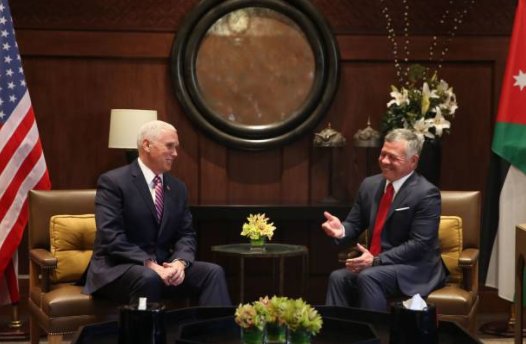
The vice president also said that “the United States of America remains committed, if the parties agree, to a two state solution.” Such a caveat deviates from long-standing U.S. support for a two-state solution as the only possible outcome of any peace deal.
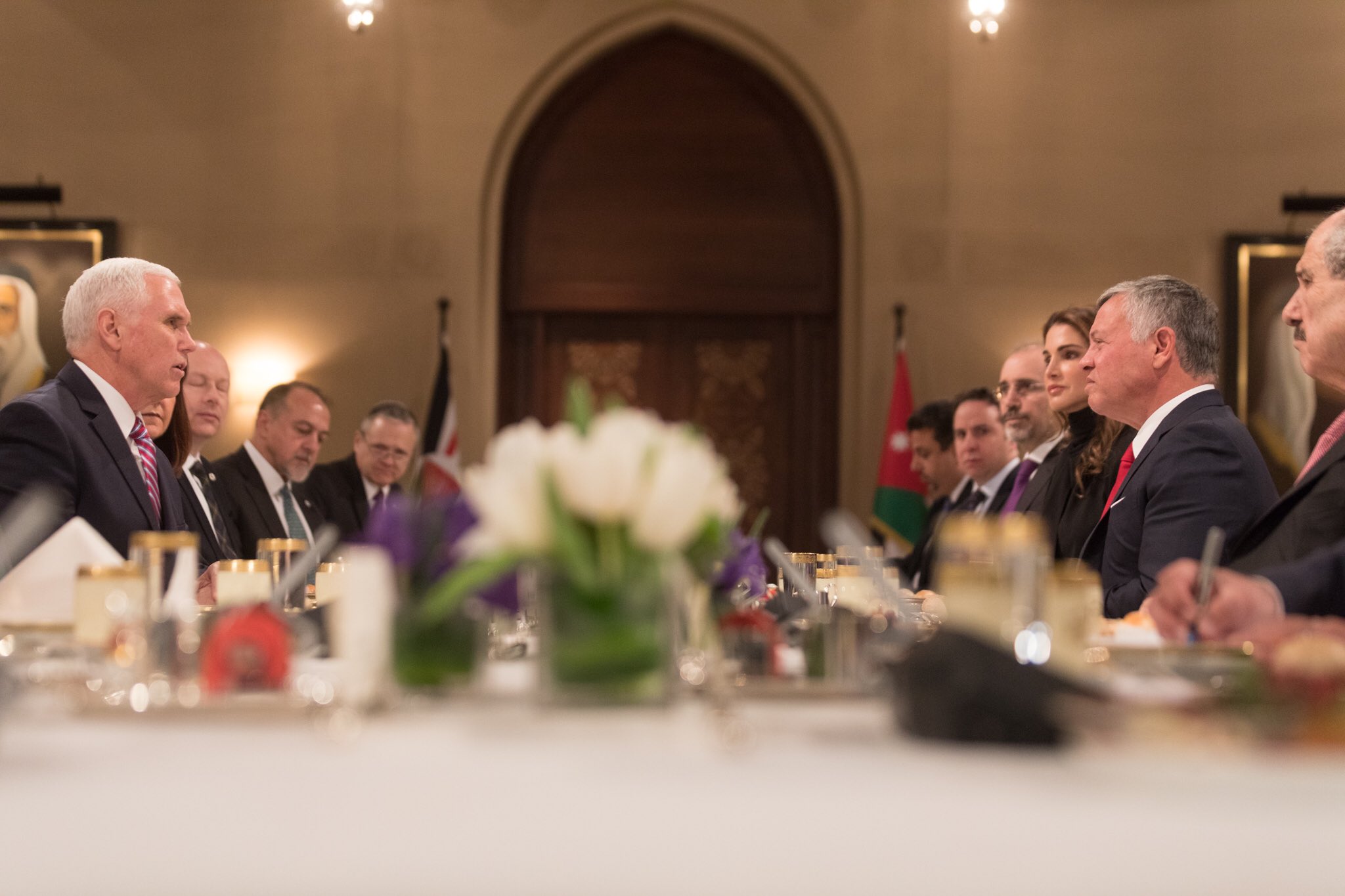
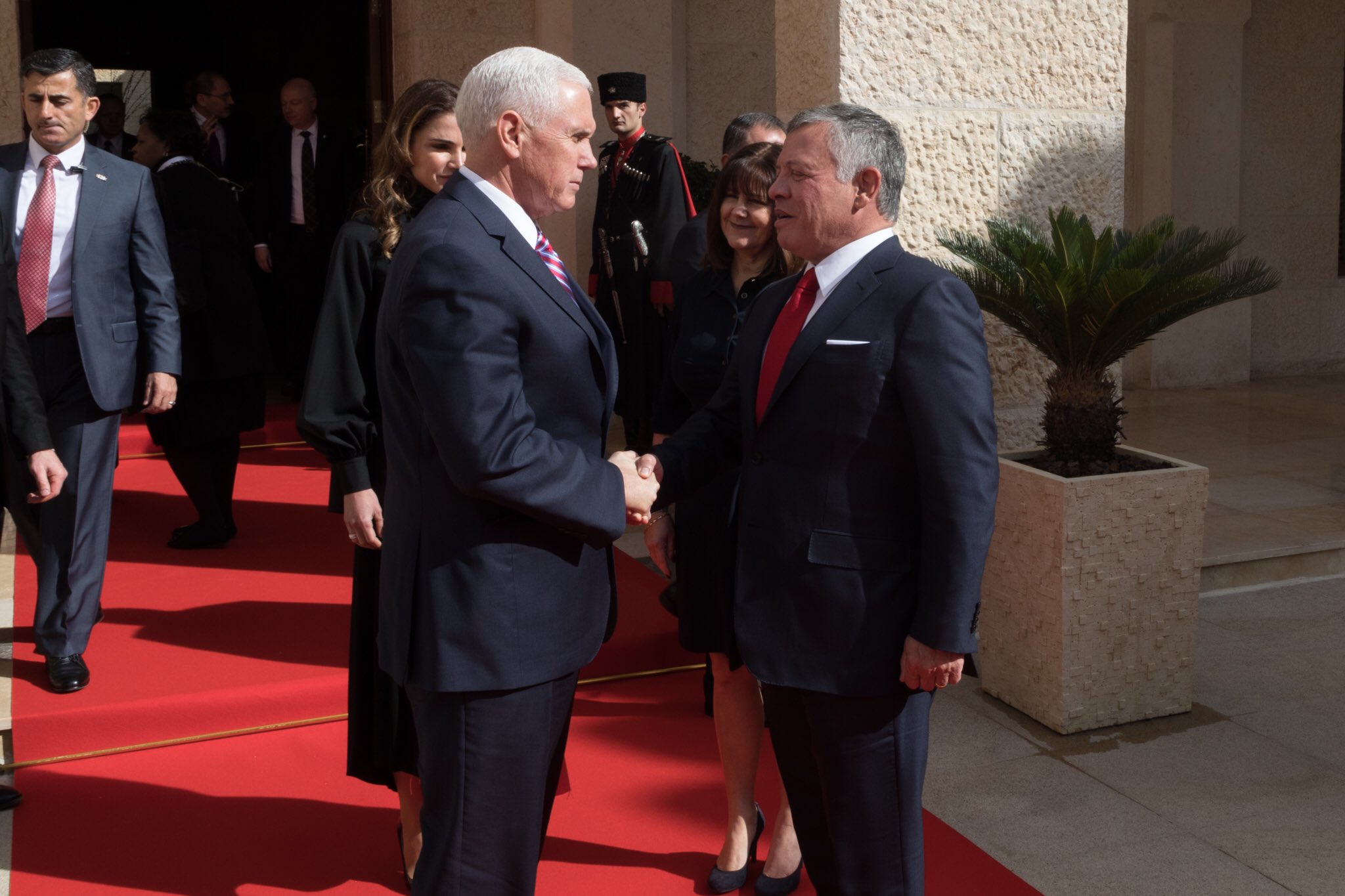
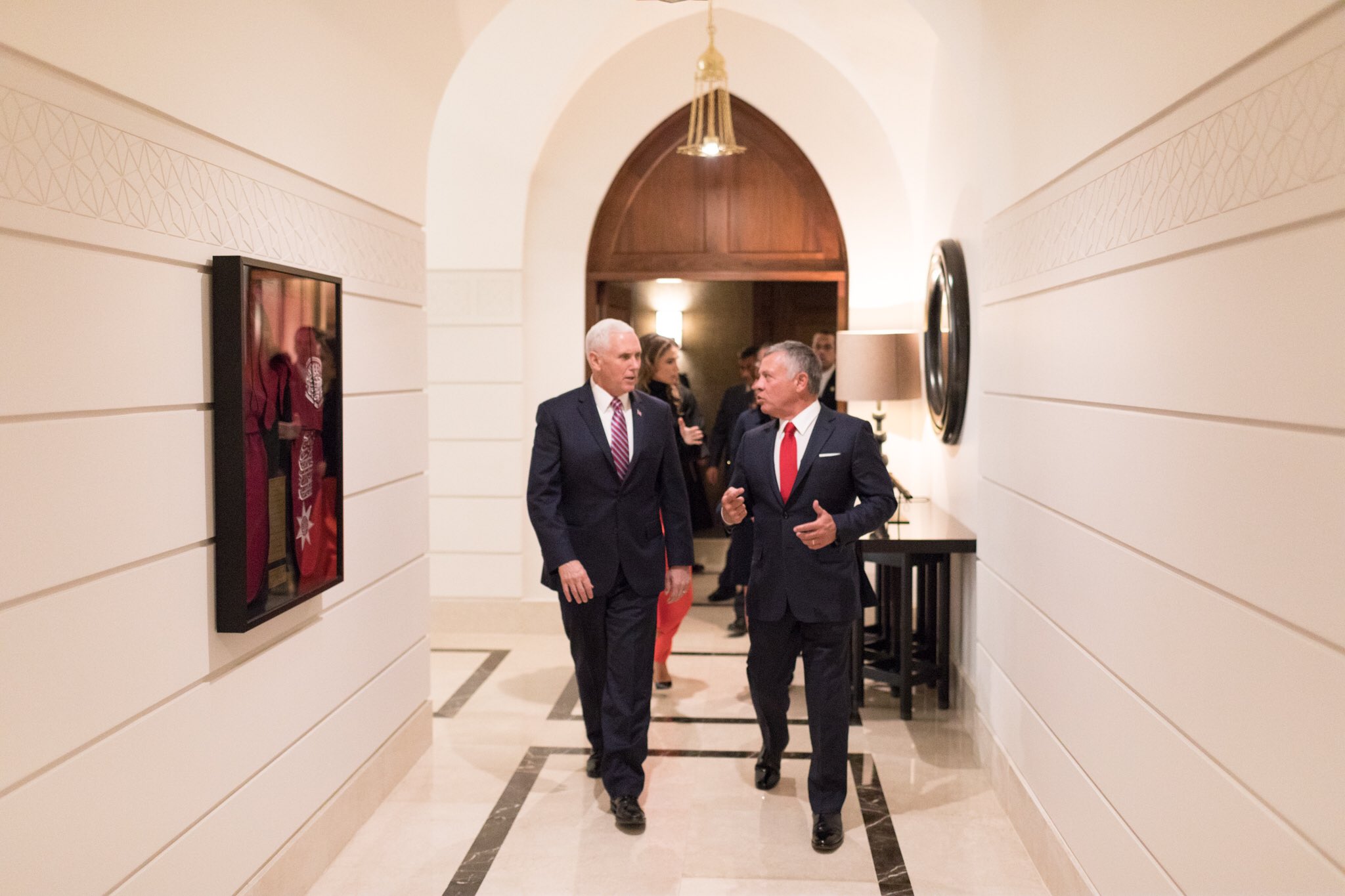
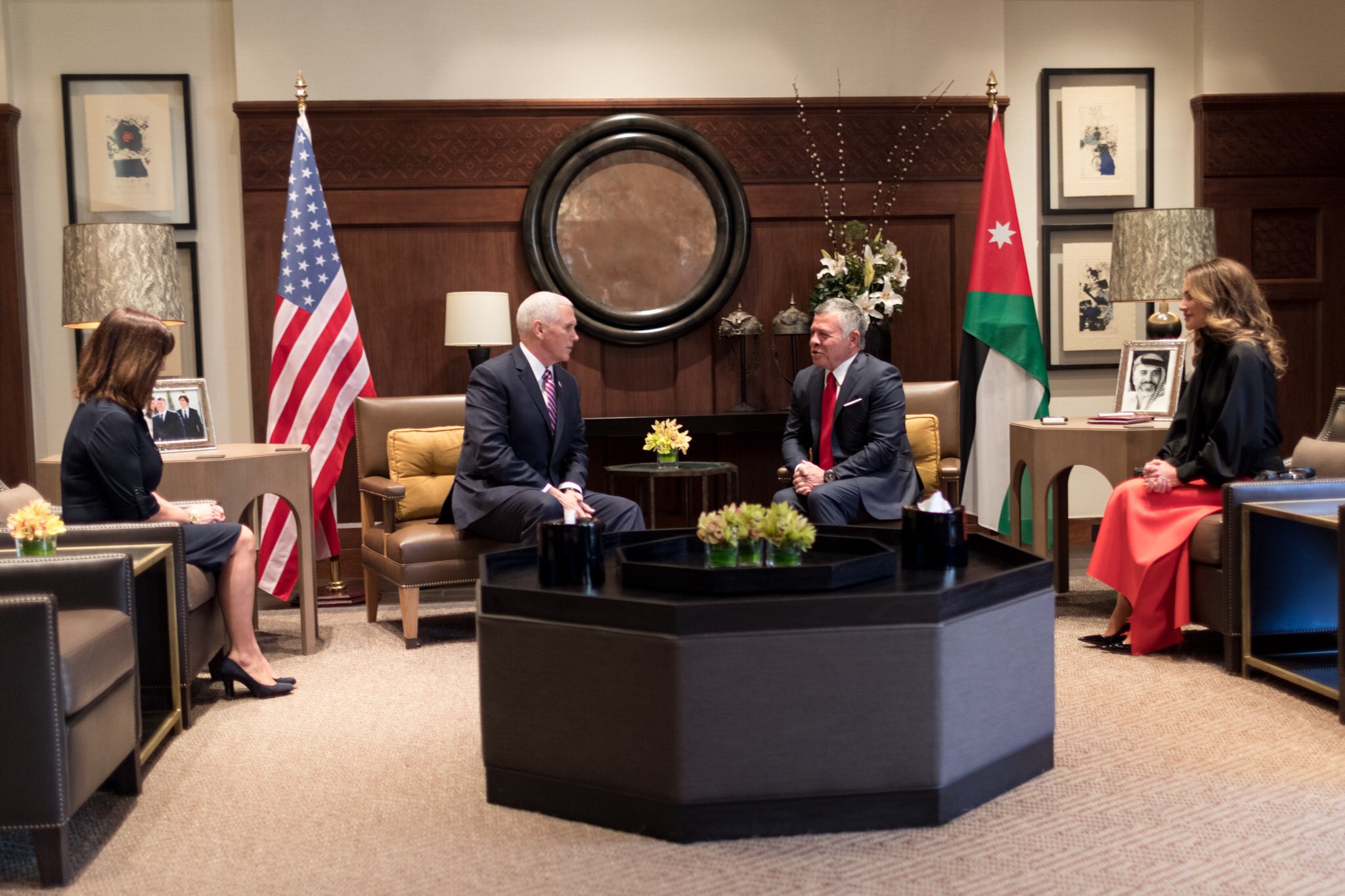
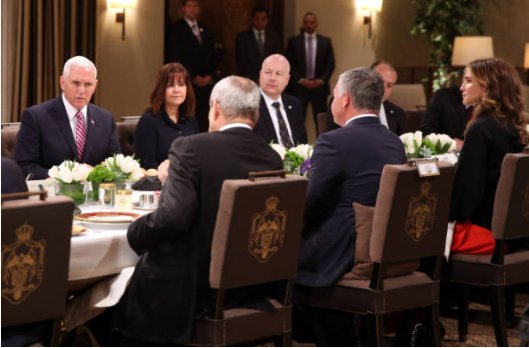
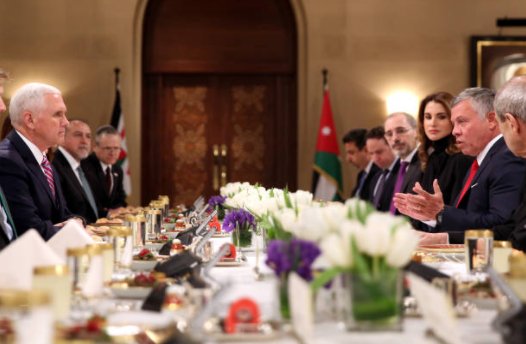
Trump’s pivot on Jerusalem last month infuriated the Palestinians, who seek the Israeli-annexed eastern sector of the city as a future capital. They accused the U.S. of siding with Israel and said Washington can no longer serve as a mediator.
It posed a dilemma for Abdullah, who is a staunch U.S. ally, but also derives his political legitimacy in large part from the Hashemite dynasty’s role as guardian of the Al-Aqsa mosque in Jerusalem. Any perceived threat to Muslim claims in Jerusalem is seen as a challenge to Jordan, where a large segment of the population is of Palestinian origin.
Pence told Jordan’s monarch on Sunday that Trump made it clear in his announcement on Jerusalem “that we are committed to continue to respect Jordan’s role as the custodian of holy sites, that we take no position on boundaries and final status.”
He said Jordan would continue to play a central role in any future peace efforts.
The vice president also praised Jordan’s contribution to a U.S.-led military campaign against Islamic State extremists who in recent months were pushed back from large areas in Iraq and Syria, both neighbors of Jordan.
Abdullah expressed concerns about the regional fallout from the Jerusalem decision.
“Today we have a major challenge to overcome, especially with some of the rising frustrations,” he said. He described the Pence visit as a mission “to rebuild trust and confidence” in getting to a two-state solution, in which a state of Palestine would be established in the West Bank, Gaza Strip and east Jerusalem, lands Israel captured in 1967.
Palestinian President Mahmoud Abbas said he would not meet with Trump administration officials and called off a meeting with Pence that had been scheduled for mid-December.
In a new expression of that snub, Abbas overlapped with Pence in Jordan from Saturday evening to midday Sunday, when the Palestinian leader flew to Brussels for a meeting with EU foreign ministers Monday. There, Abbas is expected to urge EU member states to recognize a state of Palestine in the pre-1967 lines, and to step up involvement in mediation.
Nabil Abu Rdeneh, an Abbas adviser, reiterated Sunday that “the U.S. is no longer acceptable as a mediator.”
“Any plan from any side should be based on the basic references, which are the U.N. resolutions on the establishment of a Palestinian state on the borders of 1967, with east Jerusalem as a capital, and the Arab Peace Initiative, which addresses many issues, including the issue of refugees,” he said.
“Any plan that is not based on the international legitimacy and the Arab Peace Initiative will not be acceptable, neither by the Palestinians nor the Arabs.”
VP Pence and Egyptian leader Abdel-Fattah el-Sissi pledged a united front against Mideast terrorism on Saturday as Pence, the highest-level American official to visit the U.S. ally in nearly a decade, began a trip through the region amid a government shutdown in Washington.
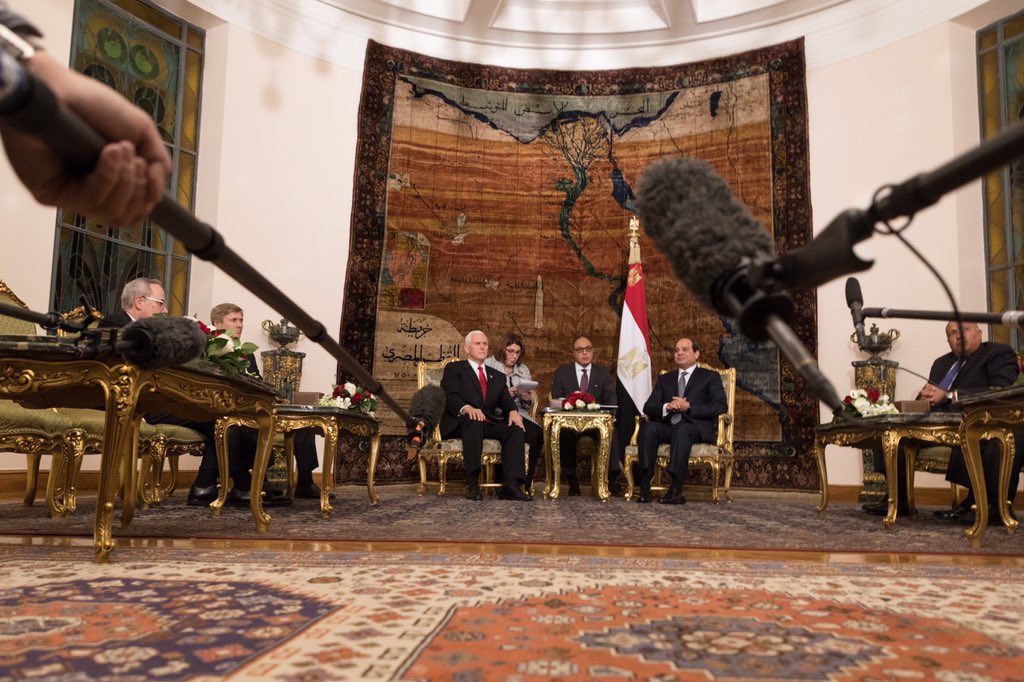
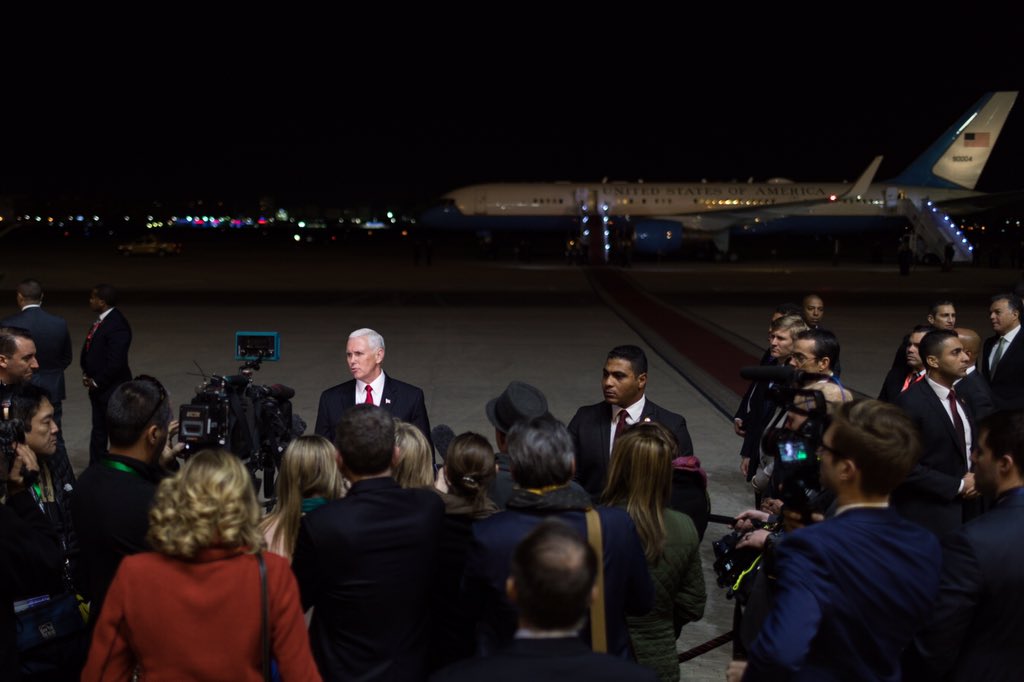
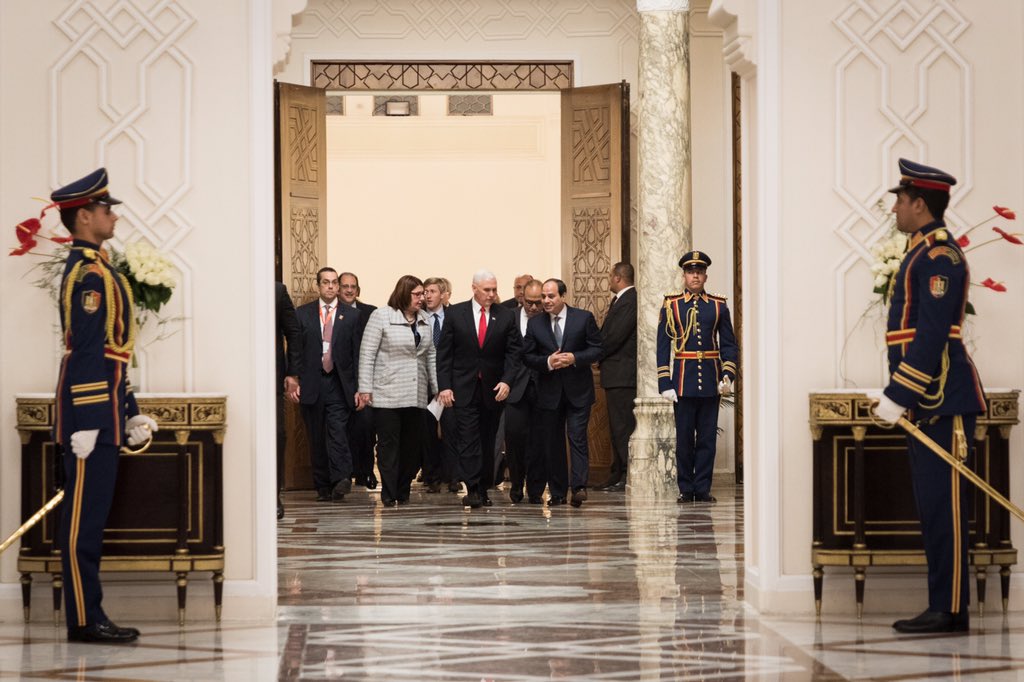
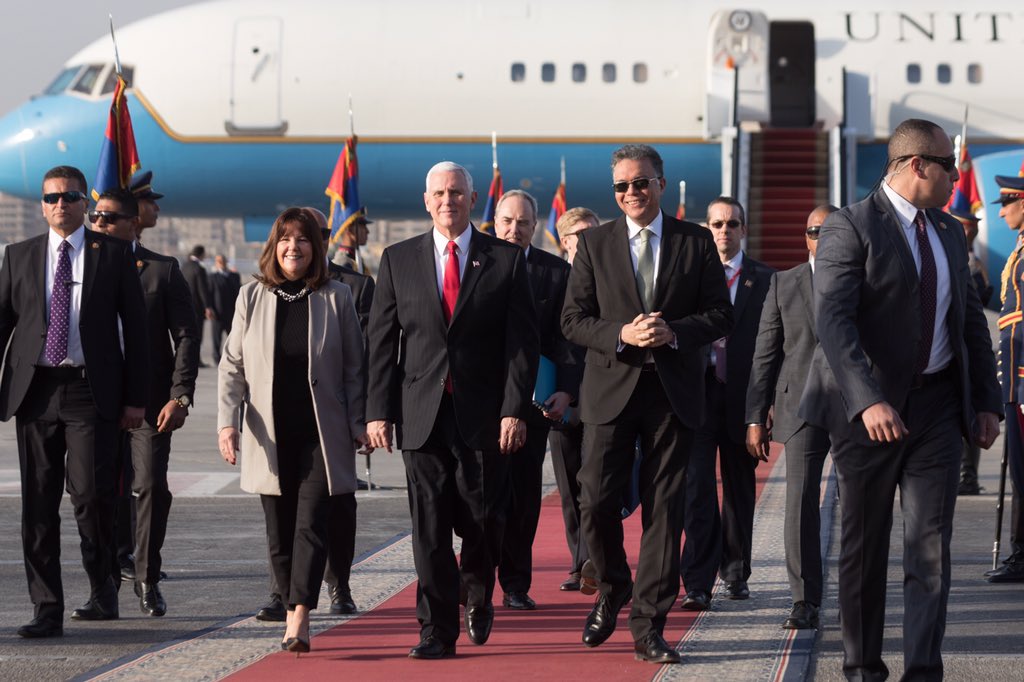
Pence told reporters that he raised the issue of two Americans who have been imprisoned for several years in Egypt and that el-Sissi said “he would give personal attention” to their cases. “We’d like to see our people come home. I made that clear to him,” Pence said before flying to Jordan.
Pence and el-Sissi held 2 hours of talks at the presidential palace in Cairo, with acknowledgements of friendship and partnership between the two countries. Through a translator, Pence listened as el-Sissi cited the need to address “urgent issues,” including “ways to eliminate this disease and cancer that has terrified the whole world.”
Pence pointed to President Donald Trump’s efforts to forge stronger ties with el-Sissi in his first year in office, “after a time when our countries seemed to be drifting apart.”
The vice president said that “we stand shoulder to shoulder with you and Egypt in fighting against terrorism” and that “our hearts grieve” for the loss of life in recent terrorist attacks against Egyptians.
The vice president noted the deadly attack against Christians in late December, when a militant opened fire outside a suburban Cairo church, killing at least nine people. He also cited the killing of 311 worshippers inside a mosque in northern Sinai last November.
“We resolve to continue to stand with Egypt in the battle against terrorism,” Pence said.
Pence arrived in Cairo hours after the U.S. Congress and Trump failed to reach agreement on a plan to avert a partial federal closure. Pence went ahead with his four-day trip to the Middle East, citing national security and diplomatic reasons.
Pence’s meetings with el-Sissi delved into security cooperation, economic ties and efforts to fight the Islamic State group. The vice president called it a “very productive” meeting and said he pressed el-Sissi to cut diplomatic ties with North Korea, urged him to respect religious diversity and told him the U.S. was committed to the Israeli-Palestinian peace process.
His visit to the region came more than a month after Trump announced his decision to recognize Jerusalem as Israel’s capital, a step that’s enraged Palestinians. El-Sissi identified “the peace issue” as one of the most important issues in their discussions.
“We heard President el-Sissi out,” Pence said. “He said to me about what he said publicly about a disagreement between friends over our decision to recognize Jerusalem as the capital of Israel.”
Pence said he assured el-Sissi that “we’re absolutely committed to preserving the status quo with regard to holy sites in Jerusalem, that we have come to no final resolution about boundaries or other issues that will be negotiated. … I reminded President el-Sissi that President Trump said that if the parties agree, we will support a two-state solution. My perception was that he was encouraged by that message.”
When Pence’s motorcade arrived at the palace, journalists traveling with the vice president were initially barred from exiting their bus. After they were taken into the palace, media were not allowed into a photo session with the two leaders. Negotiations between U.S. and Egyptian officials followed, and Pence personally requested to el-Sissi that American media be allowed to cover the event. Members of the media were eventually taken into the meeting and heard the leaders deliver short statements.
Pence was meeting Sunday with Jordan’s King Abdullah II in Amman and visiting with U.S. troops in the region. He was traveling to Israel later Sunday but was not expected to meet with Palestinians officials.
El-Sissi has built a strategic alliance with Trump and urged the American president to become more involved in the fight against Islamic militancy in the Middle East. Trump has praised el-Sissi for the April release of Egyptian-American charity worker Aya Hijazi, who had been detained for nearly three years.
But Trump’s designation of Jerusalem as Israel’s capital poses a dilemma for Egypt, which receives extensive military and economic aid from Washington but does not want to appear dismissive of Palestinian concerns.
Palestinian leader Mahmoud Abbas has condemned Trump over the Jerusalem announcement and warned that the U.S. can no longer play any role in future peace negotiations between the Palestinians and the Israelis.
El-Sissi has tried to reassure Abbas of his continued efforts to secure an independent Palestinian state with east Jerusalem as its capital.
Pence had initially planned to visit the region in December, shortly after Trump’s announcement, but the trip was postponed after Abbas’ refusal to meet the vice president in Bethlehem.
(YWN / AP)

